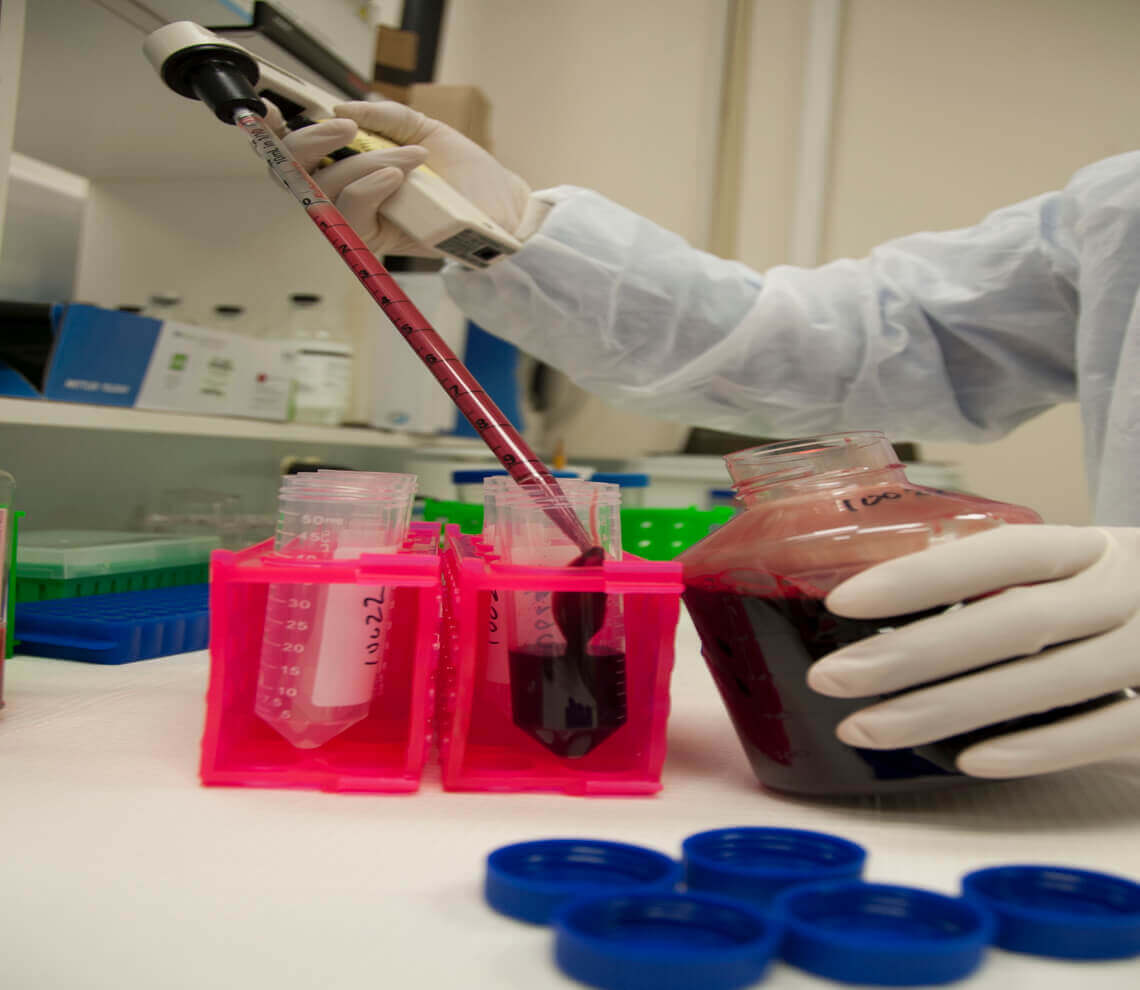- Our Suppliers
- MBS Monoclonals
- MOUSE Anti-HUMAN CD326 Antibody
Product short description
Price:
636 EUR
Size:
1 mililiter
Catalog no.:
GEN219610
Product detailed description
Gene name synonims
N/A
Purification method
N/A
Concentration
N/A
Immunoglobulin isotype
IgG1
Also known as
CD326
Gene name
CD326
Clone
VU-1D9
French translation
anticorps
Clonality
Monoclonal
Category
Antibodies
Latin name
Mus musculus
Host organism
Mouse (Mus musculus)
Subcategory
Mnoclonal antibodies
Form/Appearance
S/N (Tissue Culture Supernatant - lyophilised)
Tested applications:
Immunoprecipitation (IP), Western Blot (WB), Immunohistology - Frozen (IHC), Immunohistology - Paraffin (IHC)
Description
This antibody needs to be stored at + 4°C in a fridge short term in a concentrated dilution. Freeze thaw will destroy a percentage in every cycle and should be avoided.
Other gene names
EPCAM; EPCAM; ESA; KSA; M4S1; MK-1; DIAR5; EGP-2; EGP40; KS1/4; MIC18; TROP1; EGP314; HNPCC8; TACSTD1; GA733-2; M1S2; M4S1; MIC18; TACSTD1; TROP1; Ep-CAM; EGP; EGP314; hEGP314
Species reactivity
Human (Homo sapiens); Due to limited knowledge and inability for testing each and every species, the reactivity of the antibody may extend to other species which are not listed hereby.
Test
MBS Monoclonals supplies antibodies that are for research of human proteins.Mouse or mice from the Mus musculus species are used for production of mouse monoclonal antibodies or mabs and as research model for humans in your lab. Mouse are mature after 40 days for females and 55 days for males. The female mice are pregnant only 20 days and can give birth to 10 litters of 6-8 mice a year. Transgenic, knock-out, congenic and inbread strains are known for C57BL/6, A/J, BALB/c, SCID while the CD-1 is outbred as strain.
Properties
If you buy Antibodies supplied by MBS Monoclonals they should be stored frozen at - 24°C for long term storage and for short term at + 5°C.Human proteins, cDNA and human recombinants are used in human reactive ELISA kits and to produce anti-human mono and polyclonal antibodies. Modern humans (Homo sapiens, primarily ssp. Homo sapiens sapiens). Depending on the epitopes used human ELISA kits can be cross reactive to many other species. Mainly analyzed are human serum, plasma, urine, saliva, human cell culture supernatants and biological samples.
Storage and shipping
Prior to reconstitution Keep the antibody refrigerated at +4 degrees Celsius. Temperature variations in the range between +1C to +7C are tolerable. Following reconstitution Store the antibody at +4 degrees Celsius for short-term storage and at -20 degrees Celsius for long-term. the antibody should be stored undiluted Storage in frost free freezers is not recommended. Repeated freeze - thaw cycles may denature the peptide chains of the antibody and therefore should be maximally avoided. If there is a precipitate in the vial we recommend you to briefly microcentrifugate it prior to use. Shelf Life: 12 months from date of reconstitution.
Other names
epithelial cell adhesion molecule; Epithelial cell adhesion molecule; epithelial cell adhesion molecule; epithelial glycoprotein 314; human epithelial glycoprotein-2; cell surface glycoprotein Trop-1; adenocarcinoma-associated antigen; tumor-associated calcium signal transducer 1; major gastrointestinal tumor-associated protein GA733-2; membrane component, chromosome 4, surface marker (35kD glycoprotein); epithelial cell adhesion molecule; Adenocarcinoma-associated antigen; Cell surface glycoprotein Trop-1; Epithelial cell surface antigen; Epithelial glycoprotein; EGP; Epithelial glycoprotein 314; EGP314; hEGP314; KS 1/4 antigen; KSA; Major gastrointestinal tumor-associated protein GA733-2; Tumor-associated calcium signal transducer 1
Specificity and cross-reactivity
CD326 This antibody recognises the 34kD cell surface antigen known as CD326 or Epithelial Cell Adhesion Molecule (Ep-CAM). This antigen has been identified independently by a number of groups, and it has been known by a variety of names including Epithelial Specific Antigen, MOC31 and Ber-EP4. Several monoclonal antibodies have been raised against Ep-CAM, many of which have been described as tumour specific molecules on carcinomas._x000D__x000D_Ep-CAM is a Type 1 transmembrane glycoprotein. It is expressed on the basolateral membrane of cells by the majority of epithelial tissues, with the exception of adult squamous epithelium and some specific epithelial cell types including hepatocytes and gastric epithelial cells._x000D__x000D_Ep-CAM expression has been reported to be a possible marker of early malignancy, with expression being increased in tumour cells, and de novo expression being seen in dysplastic squamous epithelium; Since it is not possible to test each and every species our knowledge on the corss reactivity of the antibodies is limited. This particular antibody might cross react with speacies outside of the listed ones.
© Copyright 2016-Tech News . Design by: uiCookies

